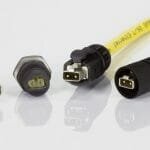South Australian company Hydroflex will launch its DCARB system at Automotive Aftermarket Industry Week in Las Vegas from October 30 – November 2.
The week attracts 160,000 buyers and distributors from around the globe and includes the Specialty Equipment Market Association (SEMA) Show and the Automotive Aftermarket Products Expo (AAPEX).
The DCARB units take 30 minutes to clean an engine and can be used on all internal combustion engines ranging in size from chainsaws and cars through to trucks and ferries.
Engines that are free of carbon build up deliver greater power, torque and fuel efficiency and are less likely to break down because they are not forced to work as hard.
The DCARB machine initiates electrolysis that creates hydrogen and oxygen vapour. The vapour is then piped through the running engine via a hose attached to the air filter, effectively oxidising and “incinerating” the carbons and pushing them out of the vehicle’s exhaust.
Hydroflex says the latest testing of the units on cars, trucks and refrigerated truck units, known as reefers, returned average fuel savings of 4 per cent.
The DCARB units are powered by 240 volts at a 15-amp circuit breaker and produce up to 20-litres of hydrogen per minute through the conversion of a potassium hydroxide/water electrolyte mix.
Business Development Manager Ron Basset said the DCARB system includes patent pending safety features to prevent the corrosive potassium hydroxide material coming into contact with the engine or the operator.
He said the cost of an engine clean, including electricity and water, was less than 50 cents.
The machines are fitted with two hoses and adjustable settings allowing the flow rate of hydrogen to be set at 5,10 15 or 20 litres an hour depending on the size of the engine being cleaned. The dual hoses allow two engines to be cleaned simultaneously, effectively doubling productivity and profitability.
“It is also an off ramp service not requiring a pit or hoist, meaning it can be done on the side of the road or by a mobile mechanic,” Basset said.
“We see our customers as being mechanics, fleets and smog testing stations.
“Trucks are probably our main market because if you can save them even two per cent in fuel the payback time would be less than a month – it’s also a good preventative measure to stop DPF filters and EGR systems from being clogged.”
Assembly of the first commercial units will begin in early November with the first orders expected to be shipped at the start of February 2019.
The DCARB unit is the first product from Hydroflex, which plans to release complementary products next year including a device to capture carbon as it exits the exhaust system during a DCARB clean and another to clean clogged diesel particulate filters.
Hydroflex CTO and founder Richard Connors relocated from San Diego in the United States to the Tonsley Innovation Hub in the South Australian capital Adelaide in 2016.
He said unlike catalytic converters and diesel particulate filters that treated emissions “after the fact”, his on-board device used hydrogen and oxygen to increase the amount of fuel burnt in the combustion process.
“I found myself hitting that brick wall in the United States but coming to Tonsley and with the support of Kaladari Industries in Adelaide, who was an early supporter of us, now with the DCARB we are on the cusp of having a product that is safe and can be manufactured and exported from Australia.
“We expect to meet a lot of people from around the world (in Las Vegas) and set up relationships with distributors, hopefully close some DCARB sales on the spot while others will want to look at doing some testing.”
Hydroflex will be among the 2500 companies exhibiting to targeted buyers from around the globe at AAPEX 2018.
The DCARB system retails for $12,000 but will be on special for (USD) $8900 during the show.







